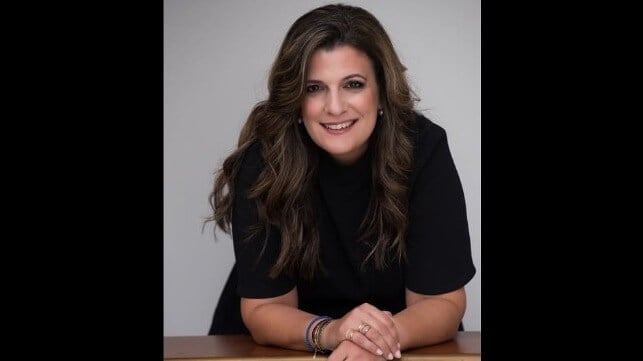Petraki: Less Conversation, More Action on DEI

Ahead of the upcoming WISTA International Conference and AGM, WISTA International President Elpi Petraki outlines the linkage between diversity and sustainability to highlight why action - not just conversation - is needed to implement systemic change.
When we talk about creating a sustainable future for the maritime industry, it’s important to remember that the definition of sustainability has more than one dimension.
As well as adopting solutions that reduce the impact of shipping on the environment, for example, shipping must sustain itself by attracting the next generation. Doing so means that we must understand that many millennials and Gen Z professionals assume diversity and protecting the environment are working principles, rather than aspirations.
The 2023 Deloitte Gen Z and Millennial Survey showed that many Gen Z and Millennials make career decisions based on their values and want to work for organizations where they feel empowered to drive change. While the cost of living is a serious concern for both generations, dealing with climate change is considered a ‘top three’ value. Again, while the survey found that satisfaction with employers' efforts around diversity, equity and inclusion (DEI) has improved since 2019, it is still cited as one of the reasons why survey respondents have turned down job offers.
Industries worldwide are engaged in reducing their environmental impacts, and the maritime sector is no exception. The International Maritime Organization’s (IMO) recently revised strategy to reduce greenhouse gas emissions included an enhanced common ambition to reach net-zero by 2050.
Encouragingly, the values of DEI that go hand in hand with changed attitudes on the environment are finally getting the attention they deserve in the maritime sector; DEI is now considered one of the top priorities for change – ranking alongside decarbonization and digitalization. All of these areas of focus are also creating new roles and opportunities in maritime which are helping to level the playing field between men and women, as both have the desired skills and experience.
A Global Outlook
While it is easy to focus on one’s own geography, shipping is a global business, where an understanding of the complexities of operations is essential, and different standards may apply on what represents ‘progress’ in different locations. Addressing challenges and opportunities on a global scale demands individual regions have the support and resources they need to implement genuine change.
Over the last few years, WISTA has continued to grow both in terms of its membership and geographical reach, and one region that has experienced considerable growth is Latin America. This growth has been especially welcome, given the dynamic rise of Latin America as a shipping and trading hub, across its network of international ports and through the inland waterways which contribute so much to both the regional and global economy.
Acknowledging the region’s importance in global shipping and trading, WISTA has chosen to host its Annual Conference and AGM in Montevideo, Uruguay from October 23-27. This will be the first time the conference has been held in the Southern Hemisphere and it will focus on the key shipping and trading activities that make Latin America such an essential part of the global economy, while also examining the industry’s journey toward a greener and more digital future, both within Latin America and beyond.
Supporting Women in Maritime Worldwide
DEI and the role of women in shipping and trading will naturally form a key part of the discussions later this month, with women becoming increasingly present and involved in the Latin American maritime industry. It is estimated that more than 25% of students in the region's maritime academies are women, and there are also a growing number of women in board-level positions in port authorities and other maritime businesses.
In addition, to support the next generation of women seafarers, WISTA is sponsoring 15 women from the maritime academies to attend the conference. The funding which has been provided by the TK Foundation, will provide these women with the opportunity to meet other industry professionals and participate in the workshops and discussions taking place during the event.
Women currently still only make up 2% of the seafaring workforce and, as revealed by the IMO/WISTA Women in Maritime Survey, also only accounting for 29% of the overall workforce within the maritime industry.
These figures provide a stark reminder of why WISTA exists, and the continuing necessity for the work we do: we need more women in all roles and in all boardrooms. This does not detract from the progress that has been made, but only when diversity and inclusion are the starting point of discussions can we say that we have truly succeeded.
Achieving Change
While the primary purpose of the WISTA International Conference is to bring the industry together to discuss how to address the challenges that lie ahead, it is also an opportunity to share knowledge and provide examples of how change is being enacted.
The old cliché of “actions speak louder than words” has never been truer than today, and we are now at a point in both the DEI and sustainability issues where we need to move beyond discussions and start putting measures in places that will bring about change that is both impactful and systemic.
As the President of WISTA International, I urge organizations to involve and empower employees to drive change, to share the lessons that have been learned and remain open to new ideas and collaboration. We all have a role to play in securing the industry’s future, but without action, it will be impossible to achieve the change that is so urgently needed.
Elpi Petraki is President of WISTA International.
The opinions expressed herein are the author's and not necessarily those of The Maritime Executive.
